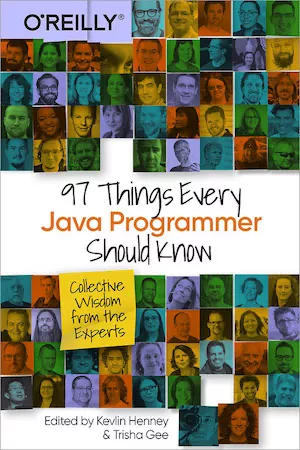Books
Peter Hilton’s published technical writing
97 Things Every Java Programmer Should Know
97 Things Every Java Programmer Should Know edited by Kevlin Henney, Trisha Gee, with contributions by Peter Hilton, published by O’Reilly Media in May 2020.
Peter’s three contributions also appear in full on his blog:
- Get better at naming things
- Refactor Boolean values to enumerations
- Write one-sentence documentation comments
Play for Scala
Play for Scala by Peter Hilton, Erik Bakker and Francisco Canedo was published by Manning Publications in September 2013.
The book teaches web developers how to use the Play Framework to build web applications using the Scala programming language.
Peter Hilton presented widely on the topic and was a certified trainer for Typesafe’s Fast Track to Play with Scala training course, before they rebranded as Lightbend.



